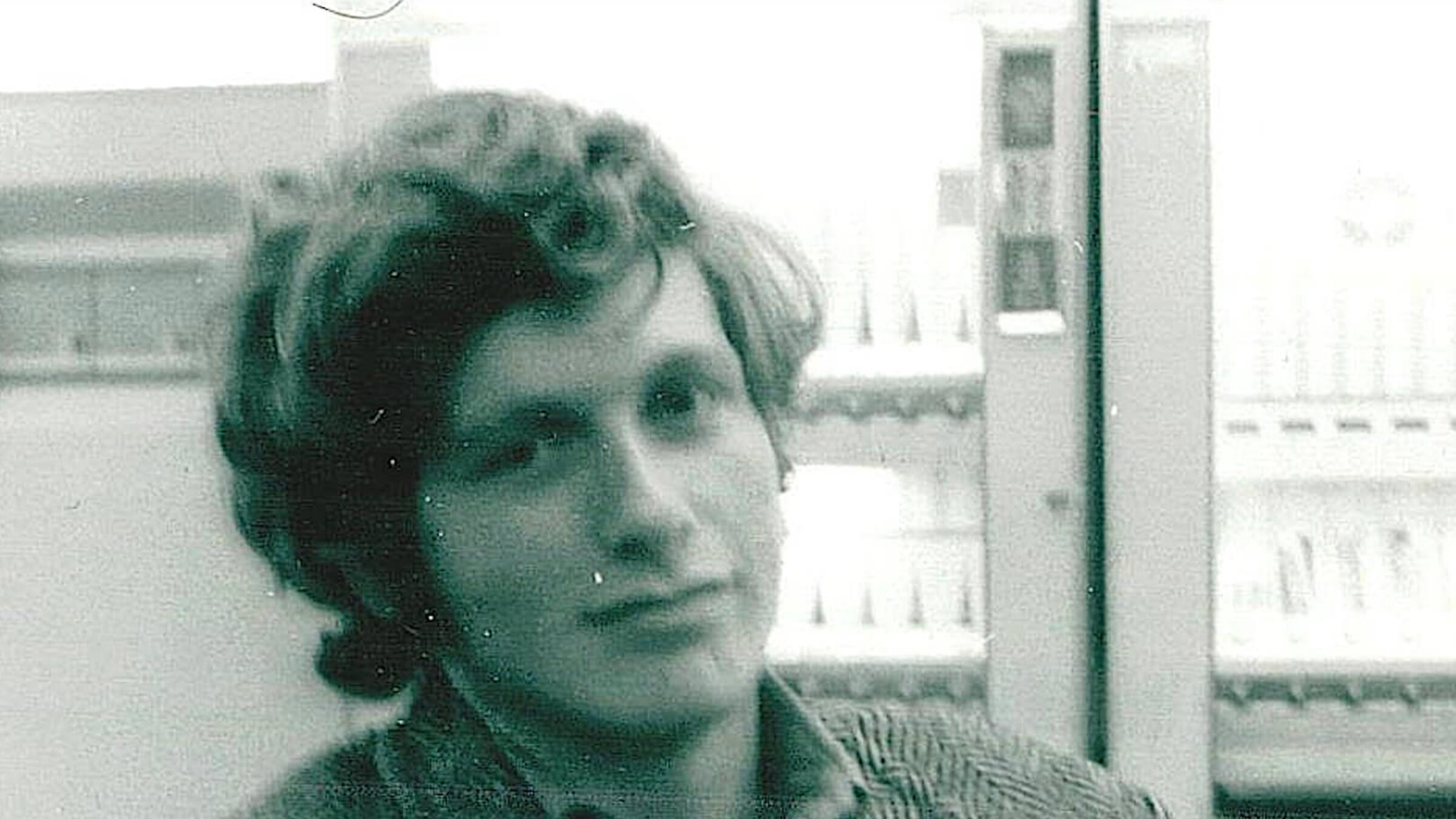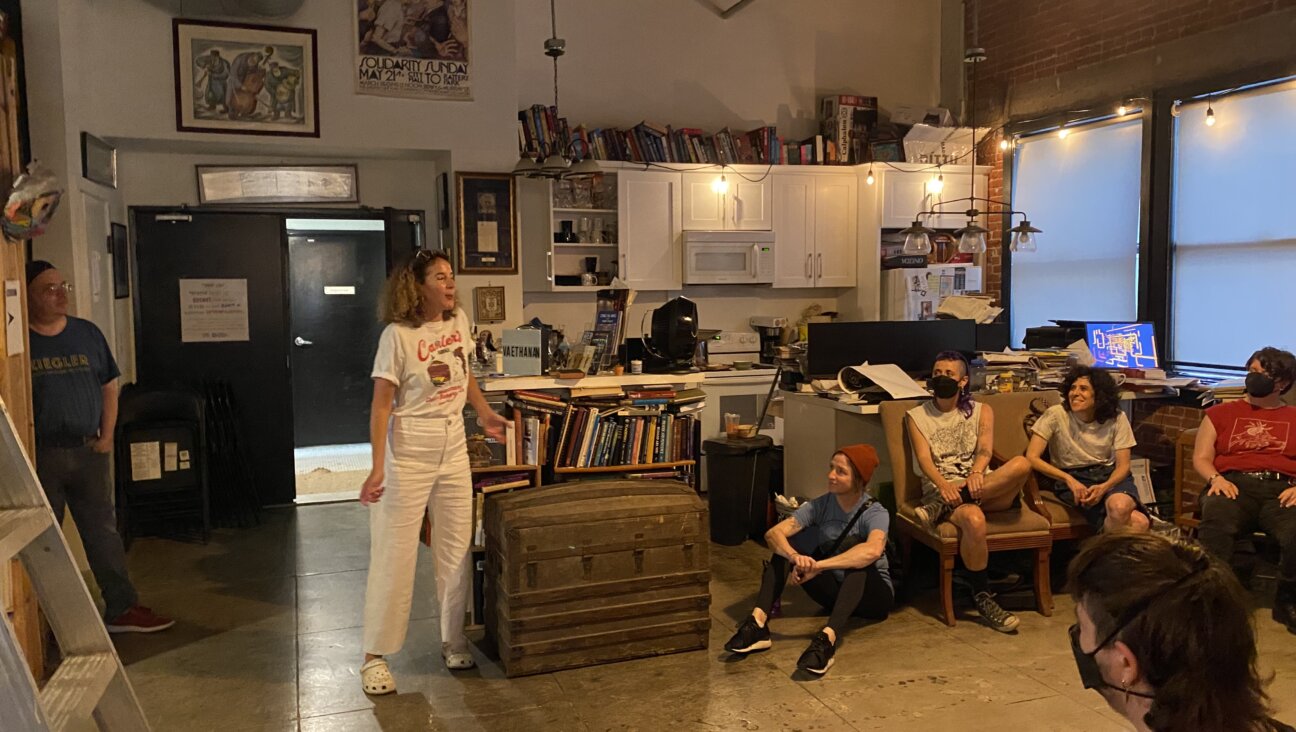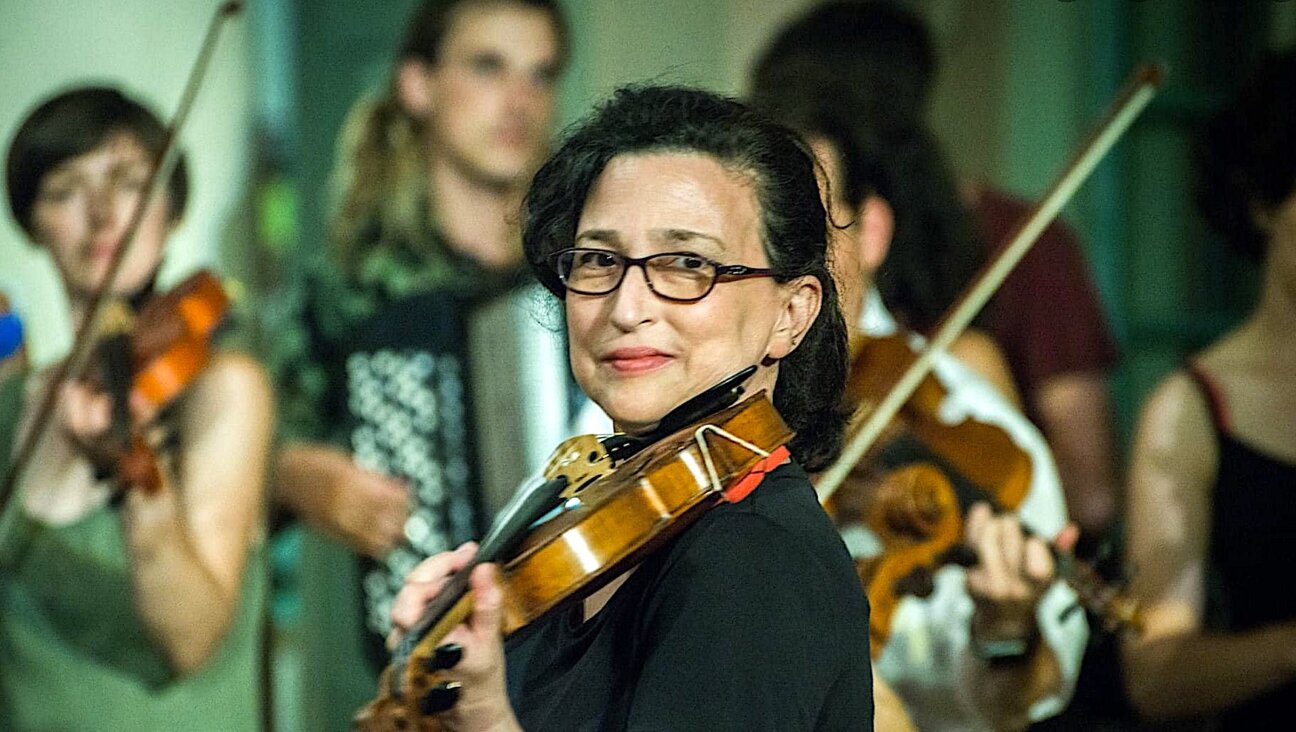The day I, a Jewish kid from the Bronx, left a Vermont salesperson flabbergasted
Avram Patt, a former Vermont congressman, shares a story proving that knowledge of Yiddish can come in handy

The author, Avram Patt, in 1969 Photo by Marcel Kshensky
Although I’ve lived in Vermont for most of my life, I’m actually a Jewish boy from the Bronx.
My parents were refugees from Poland who escaped the Holocaust when the war began. They embraced this country and its ideals with passion, yet understood how often it did not live up to those ideals.
At home, my parents spoke Yiddish to my big sister and me. They knew that we would learn English soon enough, which we of course did. So Yiddish was my first language, my mameh loshn (mother tongue), which has never left me.
I came to Vermont in winter 1970 to finish my college education that had been interrupted in 1968 due to my activism in the anti-war movement. In my first few years in the Green Mountain State I attended Goddard College in Plainfield and staged plays with the Bread and Puppet Theater.
During my first years in Plainfield, I was surrounded by the blossoming counterculture of that time. Bit by bit, I began to learn more about Vermont and Vermonters, its history, what people did for a living, where they had come from. I also became aware that, at least in certain places in Vermont, there were significant numbers of immigrants from other places who had come here for various reasons: a job, a better life or to escape bad times. Other things I discovered: there were a lot of people of French-Canadian origin and in places like Barre, there were many people of Italian origin because of the granite industry.
But it was only later that I understood how much more multicultural Vermont was than my first impression. That included the fact that there were Jews living in Vermont who had not arrived there in the 1960s and ’70s like me, but had been here for a while. Not as many as Italians or French Canadians, but still …
Sometime in the mid-1970s, I needed some clothes and decided to visit a thrift shop in Barre, on South Main Street. As I came through the door, I looked around and saw that there were no other customers. I started to walk around. It was then that I heard a voice and could see an older woman sitting behind the counter across the room. She was talking on the telephone. Nothing extraordinary about that.
Except, that after a few seconds of looking around at merchandise, I suddenly realized that she was speaking Yiddish! I was surprised but I kept going about my business for a few more seconds. Then I realized that, if she was speaking Yiddish, there was someone else also speaking Yiddish on the other end of the line! I stayed calm because I didn’t want to show my astonishment, and kept looking at items that I might buy. Then I heard her say:
“Ikh muz geyn. A bokher iz itzt arayngekumen mit langeh hor, un er zet oys… epes past nisht vegn im.” (“I’ve got to go. A young guy just came in with long hair and he looks like … I don’t like the looks of him.”)
Things like this sometimes had happened to me in the neighborhood I grew up in in the Bronx where there were lots of Yiddish-speakers, mostly of my grandparents’ generation. They didn’t expect someone of my age to understand what they were saying to each other in Yiddish, which sometimes included remarks about me or my friends. So I continued to browse for several more minutes, picking out a few items, a shirt, a pair of pants.
Then I went up to the saleswoman, put my stuff on the counter, looked at her and said: “Vifl kost dos?” (How much does this cost?)
She gasped. Her jaw dropped. She realized that I had heard, and understood, what she had said about me to the person she had been talking with on the phone. She was upset, trying to figure out what to say.
“I’m so sorry. I’m so embarrassed! I don’t know what to say!” She kept talking, mortified by what had just happened.
“It’s just that these days … Things have changed, so different … The long hair, the clothes. I don’t know what to think anymore! But, but you … you speak, Yiddish! So you must be all right!”
In that brief encounter, I learned something about Vermont that I hadn’t known. And I’m guessing that she did too. We were both stereotyping each other, at least briefly, and we both got it wrong.























